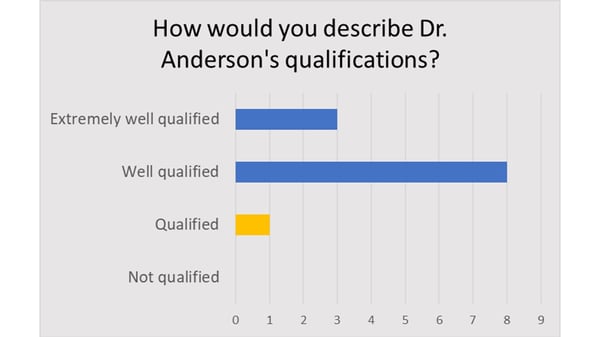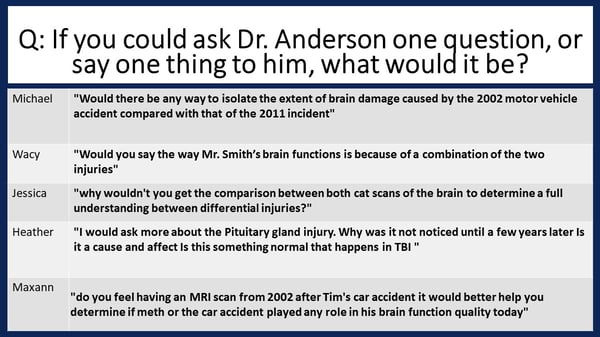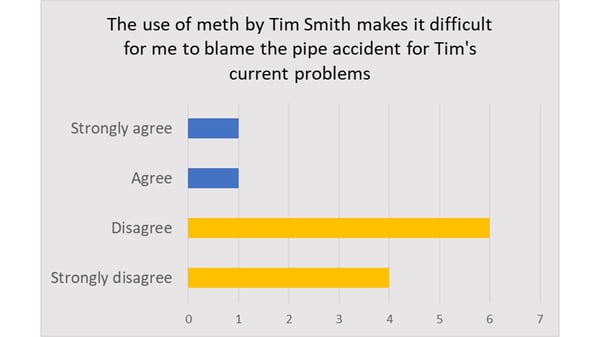How often do you hire an expert knowing most of what they will say, but not how effective it will be in helping you win at trial? If you go into trial without knowing how effective your expert witness is at persuading jurors, you risk not only wasting the money spent on their fees, but also run the much greater risk of getting surprised by an adverse decision at trial.
One powerful way to mitigate both risks is to conduct mock jury research using projected expert testimony. You know basically everything that your expert will say before retention… that’s why you hire them, right? It’s easy to put together the basic facts in a case, the professional background and key points that your prospective expert will make, and present the case to laypeople from your trial venue who represent a fair cross-section of what your public jury would look like. The key here is to present the projected testimony as though it is from an expert who has already been hired and evaluated the case. This keeps it realistic so that their objective feedback gives you a good idea of how persuasive the expert is in your case, and helps you decide who to hire.
Here’s an example from an industrial accident: Plaintiff attorney was concerned that an admission of past drug use would give the jury a negative perception of his client.
To address that concern, counsel was considering hiring an expert witness to testify to the facts that his client did not have drugs in his system at the time of the injury, had been drug-free for years before the injury, and that the past drug use had not impacted his cognitive function (important for the damages case).
The attorney was able to learn what jurors thought of the planned expert’s qualifications:

After hearing his projected testimony, we learned what the jurors still didn’t understand or were left wondering:

Most importantly, we learned how juror’s opinions about the key issue in the case were formed by the expert’s projected testimony:

All of this was learned before spending a penny on hiring an expert, and - most importantly - while the case was still months from trial.
It let the trial team know how they could improve their witnesses and eliminated the risk of going into trial with their fingers crossed, hoping that their key testimony would be persuasive.
The growth of online jury research makes this kind of targeted insight development increasingly simple and cost-effective to produce. Smart litigators should consider this approach before running the risk of hiring an expert based only on reputation or past experience, and hoping that their (expensive) testimony secures the best possible outcome at trial.
Feb 6, 2019 4:55:00 PM




Comments